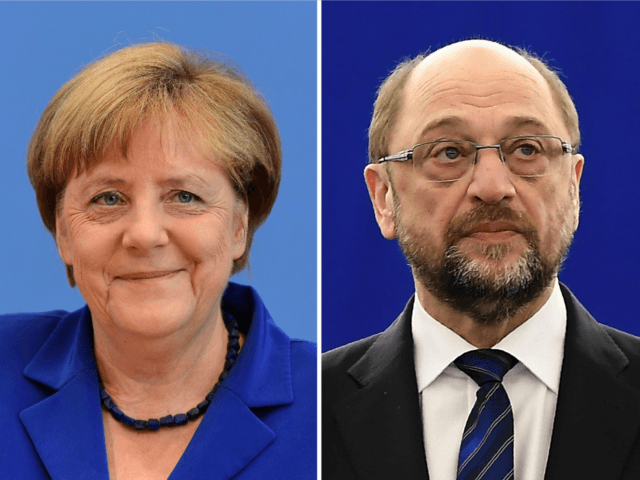BERLIN (AFP) – German Chancellor Angela Merkel emerged emboldened Monday from a surprise state poll triumph, as the hype around her main rival fizzled on its first test in a “super election year”.
With just six months to go until a general election in Europe’s top economy in which Merkel is seeking a fourth term, the poll in the tiny southwestern state of Saarland Sunday took on outsized importance.
Voters returned Merkel’s conservative Christian Democrats (CDU) to power with 41 percent of the vote, five points higher than at the last election in 2012.
The centre-left Social Democrats (SPD), who had been enjoying a surge in the polls thanks to their freshly-anointed champion, Martin Schulz, came in a distant second with 30 percent.
Schulz, the former president of the European Parliament, admitted Monday that the result had been a bitter disappointment just a week after SPD delegates unanimously elected him party chairman.
But he tried to put a brave face on the defeat.
“Election campaigns are marathons and not sprints, and we have good stamina,” he said, warning the CDU that “those who are celebrating today shouldn’t count their chickens before they hatch”.
Merkel was to hold her own news conference at CDU headquarters at 1115 GMT.
Saarland is governed by a “grand coalition” government, the same right-left alliance that Merkel leads in Berlin.
For Schulz to take her job from her, he would likely need to win a majority for a leftist coalition with far-left Die Linke and the ecologist Greens party known as Red-Red-Green.
Commentators said the Saarland result indicated voters may be getting cold feet about that prospect.
– ‘Small state, big signal’ –
Germany’s top-selling daily Bild said Merkel clearly had the wind in her sails after the Saarland vote, noting the dilemma faced by Schulz and the SPD.
“It’s a small state, but a big signal,” it said of Saarland, the first of three German state polls scheduled in the run-up to the national election on September 24.
“If Martin Schulz wants to become chancellor, he is going to have to put all his eggs in the Red-Red-Green basket ?- a big risk. And Angela Merkel can breathe a sigh of relief and get ready for the next Schulz attack.”
After weeks of breathless media coverage of the so-called “Schulz effect”, credited with lifting the SPD around 10 points in national polls to pull even with the CDU, news website Spiegel Online said the election proved he had “no magic powers”.
“This much is clear after the CDU success in Saarland: the SPD had better get ready for a tough campaign,” it said.
The centre-left Sueddeutsche newspaper said the poll had been a crushing reality check for the SPD.
“While yesterday’s result hasn’t ended the SPD’s hopes of making it into the chancellery, it has certainly put a damper on Schulz mania,” it said.
Merkel’s CDU had suffered a string of state poll setbacks in the wake of her decision in 2015 to open the borders to hundreds of thousands of refugees, mainly from strife-ravaged Syria, Iraq and Afghanistan.
However the issue has lost its explosive force in German politics as the number of new arrivals has dwindled.
The right-wing populist AfD party, which had seized on voter outrage and angst over the issue, won seats in Saarland Sunday, its 11th German state, but with an anaemic result of six percent.
The score was just over the five-percent threshold of votes needed to gain representation.
Political scientist Robert Vehrkamp of the Bertelsmann Foundation noted that strong turnout of around 70 percent had transformed what was forecast as a tight race into a show of force for the CDU.
“Many voters, particularly the centrists, are nervous about the strong results of the populist parties on the fringes,” he told DPA news agency.

COMMENTS
Please let us know if you're having issues with commenting.